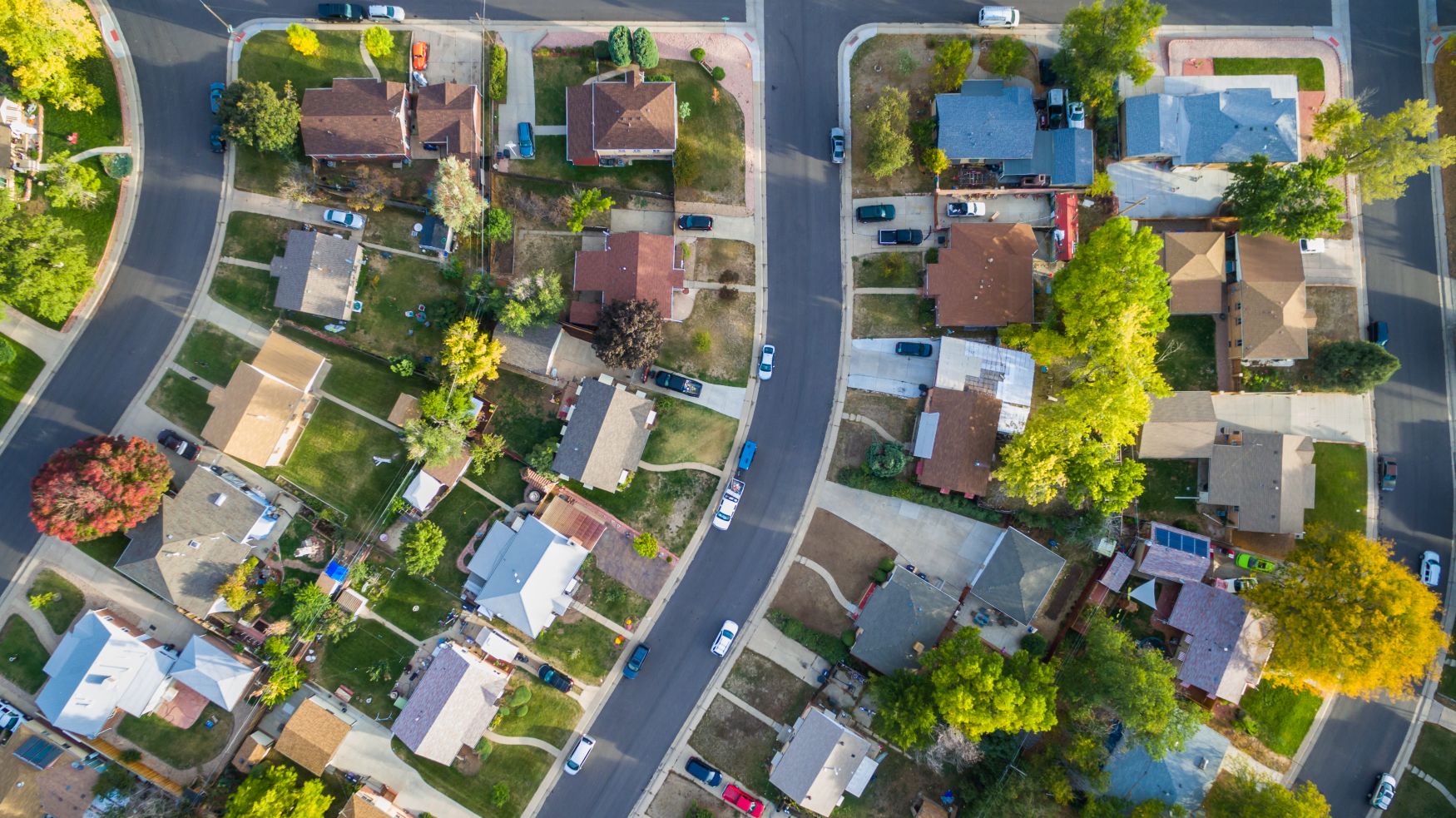Real Estate Farming: Ultimate Guide to Farming in 2024
Real Estate Farming | 11 Jan, 2021
by Jeffery Li
Reading Time: 3 Minutes

What is farming in real estate? Simply put, real estate farming is a strategy wherein a real estate agent positions themselves as the go-to expert for a particular neighborhood or geographic area. Part of what makes real estate farming such a powerful opportunity is that it lets you laser focus your marketing message on a very specific audience. Rather than trying to cast the widest possible net, you're instead casting a very precise one - all while crafting messaging that is tailored to what people in this area might be interested in.
As the name implies, the term “farming” comes from agricultural farming, and indeed the two share quite a bit in common with one another. Farmers take complete control over their environment, first planting seeds for their crops and then nurturing them, watching them slowly grow until they're finally ready to be harvested. Real estate farming is the exact same concept, where you cultivate relationships in an area such that when the property owner might be ready to sell you are top of mind.
Consequently farming is more of a long-term approach to real estate sales than some agents might be used to. But at the same time, it's one that pays incredible dividends because once you're established as a genuine local expert and authority, that reputation will begin to generate its own momentum to the point where more and more leads come calling.
How Much Does Real Estate Farming Cost?

Obviously, the cost of real estate farming will vary greatly depending on a range of factors, all of which have to do with the geographic area that you've selected and the media through which you want to communicate your message. The number of people in your farm will obviously correlate to the number you need to contact, for example. Then you must consider the unit cost of direct mail collateral, fliers, or digital ads to reach the entire farm.
Your ROI on the farm will also be tied to two broad numbers:
1. The average sales price in your area
2. The turnover in your farm
A strong combination of a high the average sales price and a solid amount of turnover will yield the agent the most money.
More on this shortly, but agents should not be farming an area where properties rarely come on the market for sale. A quick search of your local MLS or a consultation with a title representative can help to further understand turnover.
How to Pick a Real Estate Farm

On the subject of picking a real estate farm, there is no "one size fits all" approach to making this determination. Generally speaking, for the best results you'd want to pick a place where you are at least familiar with the neighborhood - which is why most real estate agents select a farm that is somewhat close to where they already live and work.
This approach is key, as it lets you use local expertise to your advantage when engaging with clients. You have all the data you need to give quick and accurate answers when people ask about things like restaurants, schools, points of attraction and more, which will go a long way towards building trust with your audience.
Likewise, picking a farm close to your home lets you leverage the connections you already have within the community. The people who you see whenever you go to the grocery store, or movie theater, or when you have a night out at a local restaurant are the same people you're going to be working with. The fact that you already have a connection goes a long way toward deepening it for the benefit of all involved.
This also brings with it the added benefit of allowing you to connect with prospects easily. You never know who you may run into when you're on your way to run errands, or when you're waiting in line at the bank. This can evolve into what may be the most important advantage of all: you'll know immediately whenever someone is thinking of selling. If someone knows that one of their neighbors is thinking of selling, the chances are high that you'll be among the first to know if you've dominated your farm.
Because you'll be so highly trusted at that point, they may actually come to you for advice rather than waiting for you to contact them - which is a very exciting position for any agent to be in.
Perform This Research Before Choosing Your Farm

Having said that, there is no rule that says you must choose a farm that is close to where you live - though it's helpful for all of the reasons outlined above. Still, regardless of the area you choose, you'll want to do extensive research to help make sure you really are the expert you claim to be.
Just a few of the topics you'll want to dive deep into include ones like:
- Geographic Research. Who are the most popular employers in the area? What are the types of transportation frequently used? What are the hottest nearby amenities like restaurants? What are the schools like? These are questions that you'll need to be able to answer.
- Property Research. You'll want to look into the average sale prices of homes in your potential farm, obviously, but you'll also want to research things like popular home styles as well. You should also know things like the median lot sizes and home dimensions and features.
- Inventory Research. Simply put, you'll only know if a potential farm is viable if you have a large inventory of homes that you could potentially sell. Don't just look into existing homes, either. Look for information on upcoming construction or even newly constructed homes, too.
- Demographic Research. In addition to learning more about the average age of the residents in this area, you'll also want to find out as much as you can about the average income of homeowners. All of this information should help fuel the decisions you make in the future.
Research the Turnover in Your Farm
The best real estate farm will have a high degree of turnover. Turnover is defined as the number of properties that sold over the last 12 months divided by the total number of homes in the farm.
As an example if there were 5 properties that sold last year and your farm is 100 homes, the turnover would be 5%. The more homes that sell in the farm the better your chances of getting deals from your marketing efforts are.
Understanding turnover in your farm is mission critical as mailing, door knocking and other marketing efforts to an area where properties never sell is futile and a waste of marketing dollars.
Conduct Competitive Research in Your Farm
Finally, you'll want to determine the total number of competing real estate agents in the area that you may be selecting. Obviously, if you want to truly dominate a particular farm, you need to know who you're up against so that you can figure out what elements of their approaches are working and, more importantly, which ones aren’t.
An agent recently expressed some interest in targeting a luxury condo building in Los Angeles. We dug into the MLS data and determined that 20 sales had occurred in the building over the last year. Of the 20 sales, 15 of them happened to have been completed by one agent. It turns out that this agent also lives in the building and clearly has top of mind awareness among residents.
This is not the best case for an agent trying to gain traction in a neighborhood. The ideal scenario is that there should be plenty of turnover and the deals should be spread among a wide variety of agents.
How to Create a Real Estate Farming Strategy

Once you've carefully selected a real estate farm to call your own, you can begin crafting the perfect strategy to help position yourself as the authority you know yourself to be. Successful marketing is about nothing if not getting the right message in front of the right person at exactly the right time. The same is true in real estate farming, and getting to that point will require you to keep a few things in mind.
1. Provide Value in Your Marketing Material
Chief among them being the fact that absolutely every message you put out into the world must contain something of value. That goes for every Facebook post, every direct mail postcard, and every update to your website. There should be something that your readers walk away with that they didn't have before they'd encountered your message.
To get ideas for crafting this type of compelling content, pay attention to the types of conversations that people are already having and see where you can interject with your own unique perspective. See if you can answer a number of common questions that people have about the real estate industry without coming right out and asking for something in return. Even if you just want to shed light on an important industry topic or send out market updates periodically, it doesn't matter - give them something theydon't already have.
2. Include Calls to Action in All Direct Mail
But while your marketing collateral shouldn't simply be thinly veiled advertisements that are disguised as something helpful, every message should have some type of call to action. This means that you need to be direct and push people further down the sales funnel, even if you're doing so in small, incremental and discreet ways.
Note that this does not mean that every message needs to end with some variation of "are you ready to list your home? What are you waiting for, contact me today!" That would get old pretty quickly. Vary things up a bit and use things like "sign up for my newsletter to receive regular market updates" or "contact me to learn more about ways you can improve your home's value." Both tell people exactly what the next step is that you want them to take, and both encourage them to continue your relationship by making contact.
3. Be Consistent with Your Outreach
But the most important element of your real estate farming strategy can truly be summed up in a single word: consistency. Never forget that real estate farming is about long term gains, not short term ones. You're not going to get an immediate influx of clients as soon as you begin your farm, and you shouldn't expect one, either.
Successful real estate farming is all about nurturing your leads consistently over time. Most real estate agents start to see a positive return on investment from their efforts after about 8 months of regular, quality content. If you're not ready for that type of commitment, you may want to rethink your approach.
Successful Real Estate Farming Ideas

Never forget that farming is about so much more than just advertising. The goal is to build relationships with the folks in your farm in every sense of the word. There are few better ways to get some face time with potential buyers and sellers than to just stroll right up, knock on their door and ask for a few minutes of their time.
1. Always Have Business Cards and Door Hangers Ready to Go
When you do, be sure to have some type of business card or other collateral material at the ready so that they know how to contact you when they're ready to take the next step. You may also consider informational door hangers in your farming area, which can be particularly helpful if someone either isn't home or if you don't feel like knocking on so many doors.
2. Sponsor a Local Sports Team
Because farming is also about community-oriented actions, you could also make a name for yourself by sponsoring a sports team or by "giving back" in a similar way. Not only will this score you brownie points with the community, but it's also a great way to increase your exposure. Note that if there aren't any Little League teams in need of sponsorship, you could also consider backing community events that interest you, holding food drives or even participating in local school fundraising events.
3. Provide Free Consultation to Your Community
Another great idea to show off your local area expertise is to give it away for free - from a certain point of view. If your farm consists of a For Sale By Owner consider hosting some type of physical or virtual consultation to answer any questions that they may have. You can give them some tips, tricks and best practices that they won't find on the Internet, and you can generally just walk them through the process and help them understand the road that lays ahead.
Sure, some of these FSBOs may take the insight you've given them and use it to successfully sell their home - and that's okay. Because most of them will likely remain overwhelmed with the process and suddenly see the value in working with a real estate agent that they were unaware of previously. The positive word of mouth these types of events often generate can even create additional leads as well.
If this is something you choose to pursue, just be sure to provide your email address, phone number and other contact information like your website so that interested parties can follow up with you at a later date.
Use a Real Estate Farming Calendar to Help Stay Consistent

At this point, you have all of the information you need to confirm that you've selected the right farm area. You're armed to the teeth with data about who owns what property and the strengths and weaknesses of the local market.You've painstakingly built your real estate farming strategy and you know all of the best farming techniques to get the most out of it over time.
Now, all you have to do is maintain that consistency - something that is exponentially easier if you have a real estate farming calendar filled out.
Most marketers use content calendars to keep track of pieces they've completed, pieces that they're currently working on and the publishing dates associated with each piece. A real estate farming calendar takes things one step further by also helping you keep track of which channels you're using at any particular moment.
Keep Track of Your Website Content
Website content, for example, should be updated at the very least on a weekly basis - but really as often as you're able to do so. At a bare minimum, your farm area should have its own section on your website where you post content that is hyper relevant to just those neighborhoods. You can post about upcoming events around town, important breaking news items and more, so long as you keep a steady stream of content going that people are actually interested in reading.
Really, what you're trying to do is create a hub for people in your neighborhood to use to stay informed and see what is going on. This doubles as a helpful resource for people who may be thinking of buying in the area to see what type of activities they can expect. None of this content has to be thousands of words long - even a couple of sentences and a few relevant pictures will work nicely.
Schedule Social Media Posts in Advance
In terms of the types of real estate farming social media posts that you'll be creating, this too should be published on at least a weekly basis. But remember that while your website content is aimed at informing people, social media sites like Facebook, Twitter, NextDoor and others are designed to engage as many folks as you can.
NextDoor in particular is a great social network that a lot of agents often overlook, as it's smaller than something like Twitter. But it will also be made up exclusively of people living in your farming area, which is why it's an opportunity you don't want to miss.
You're trying to get people to like, comment on and share your posts to not only keep them active, but to also tap into some of their connections.
Here you could post pictures for people to comment on, offer questions for people to answer, hold local contests, you name it - so long as you keep everything as positive and relevant to the farm itself.
Plan the Delivery of Your Real Estate Postcards
Real estate farming postcards should also be on your agenda, but these really only have to go out on roughly a monthly basis. Although this type of content is generated less frequently, it truly is the backbone of your real estate farming strategy.
You can use postcards as an opportunity to do everything from deliver snapshots of recent market activity to wish everyone in your area happy holidays. Again, so long as it provides something of value to your recipients they will be happy to receive it.
Finally, you'll want to start thinking about on-demand real estate farming postcards for new listings - something that will obviously go out every time you have another house to sell. Yes, you should still use your website and your social media channels to announce new listings, but never assume that EVERYONE is checking these places at all times. This is especially true as the frequency of Facebook posts, Tweets and Instagram posts can easily cause your content to get lost in the shuffle.
Postcards are also great to make sure that you aren't getting lost in the digital noise we're all wading through. A Facebook post might get lost in the current news cycle, whereas a postcard can live on someone's refrigerator for weeks at a time.
You can send out these on-demand postcards for events like:
- Just listed.
- Price reductions.
- istings with upcoming open houses (be sure to include dates and times).
- Just sold properties.
Not only does this engage prospective buyers by showing them more information about properties they might be interested in, but things like "sold" postcards also help show prospective sellers the kinds of results you'll be able to generate for them.
Reap the Benefits of Real Estate Farming
In the end, provided that you're ready for the long game, real estate farming is a valuable marketing opportunity that will absolutely prove its worth over time. Once you plant those proverbial seeds, nurture and cultivate your real estate leads, your efforts begin to generate their own momentum in the best possible way. One satisfied customer becomes two, which becomes ten, then twenty - which is an incredibly exciting position for any agent to be in.
Sign up for our newsletter
Recieve direct mail marketing insights to help grow your business.
Get the latest tips sent straight to your inbox.
Sign up for our newsletter
Recieve direct mail marketing insights to help grow your business.




